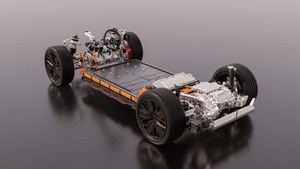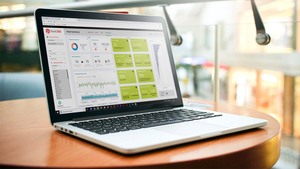With recent events in Russia and sanctions coming into place from many countries, we need to look at how to transition away from diesel and more to the point Russian diesel. The focus should be on highest-mileage diesel vehicle users ie. fleets.
The West’s demand for oil comes at a very high price. Russian diesel accounts for 58% of Europe’s diesel and gasoil imports in 2021. The UK imported £3.3bn of oil from Russia, which supplies nearly 20% of all the UK’s diesel. In Germany, Russian diesel accounts for approximately 11%.
Each time we fill-up a tank of diesel we typically hand Putin, and his oligarchs, 7% of that spend to help bankroll the Russian onslaught of Ukraine and undermining our own security.
With so much diesel being used in transport – cars, vans and trucks – how can we reduce our deadly diesel trade with Russia?
The end of ICE vehicles
Sales of new cars and vans in Europe, that produce carbon emissions will be banned as of 2035. Some countries like the UK are planning to end the sale of ICE cars by 2030 and shift to new zero-emission-only cars and vans by 2035. Trucks will by 2040. This will clearly will accelerate the decline of diesel use. But changing the mix of cars on the road takes years, while we have weeks if we are to hit Putin in the pocket and help derail his assault on Ukraine and threats to our NATO allies. We need to act faster.
Self sanctioning
The United States banned imports of Russian oil and gas as of March 2022. The UK plans to phase out Russian oil by the end of 2022. The European Union is also working on reducing its reliance on Russian fuel. European oil companies are self-sanctioning if possible, creating a chaotic market across crude and products.
While crude prices have traded at levels not seen since the 2008 economic crash, some products have hit records. People and industry will react with panic buying and others might be holding products as part of logistical strategies. Supplies will be put under strain and costs are likely to rise even further in the coming months as costs are passed onto the consumer.
The situation would be easier if we didn’t burn so much fossil fuels.

How do we reduce use of Russian diesel?
From mobility patterns to consumer buying patterns, we can reduce our reliance on Russian Diesel.
- Competition rules could be relaxed to allow haulage and delivery companies to collaborate to reduce empty running, increase loading and eliminate multiple daily deliveries.
- Do we need all our ‘stuff’ the next day? Should online shoppers be encouraged to reduce the frequency of deliveries?
- As fuel prices have soared, many people have reduced their cruising speed to gain better fuel efficiency. Should speed limits on motorways be reduced?
- Car sharing
Businesses could implement car sharing programmes. Workplace travel plans typically save 14% of trips, so cutting just 10% of business and commuting miles is possible. And how about non business trips? The ‘school run’ accounts for huge congestion in the morning and evenings. Schools should be encouraged to develop travel plans that connect parents and staff making a similar trips. School buses could be increased and more children could be encouraged to cycle. - 7% of car trips are less than one mile and 24% less than two miles. These ‘car trips’ could be switched to walking, (e)cycling or public transport.
- Driver behaviour and the way we drive and maintain our cars also has a huge effect on the amount of fuel they consume. By driving slower and more smoothly, correctly inflating the tires, removing unnecessary weight from car boots and regular maintenance savings of at least 5% and up to 10% are possible. Internal and public campaigns should be started to teach drivers how to cut their fuel use and bills. The added effect of this is an improved driver safety culture.
But there’s plenty more we could do to further reduce our oil use. More freight can be shifted onto rail, or cycle deliveries in urban areas. More bus lanes can speed up public transport, increasing its appeal. More cycle lanes will make it safer to ride. All these measures can complement the shift to electric vehicles.
Europe has to consider its long-term energy security and over reliance on fossil fuels. By adopting the right measures at government, company and consumer levels we can simultaneously tackle the triple threat of Russia, the cost-of-living crisis, and a climate catastrophe.
The ongoing tensions between Russia and other states are driving a new conversation. We cannot ignore the impact that this will have and continue to have for months, if not years to come. We can all take action and consider how a fleet policy can affect change.



